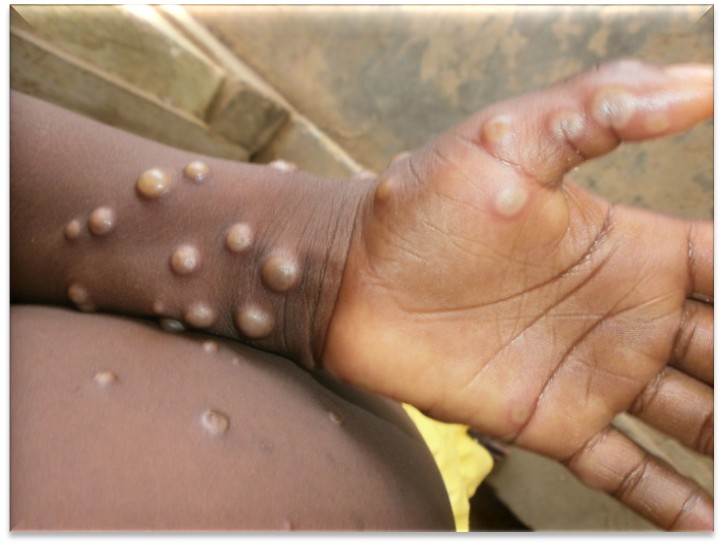A recent study led by researchers at Beth Israel Deaconess Medical Center (BIDMC) has found that antibody levels against mpox decline rapidly within 6 to 12 months after vaccination, potentially leaving previously vaccinated individuals vulnerable to infection.
Summary: Mpox vaccine antibody levels drop significantly within a year, suggesting boosters may be necessary to maintain protection against the virus.
Estimated reading time: 5 minutes
The 2022 mpox outbreak marked the first time the virus spread widely across multiple countries beyond Africa. As public health officials rushed to contain the spread, vaccination efforts targeted high-risk populations. However, new research published in JAMA raises questions about the long-term effectiveness of these vaccines.
Rapid Decline in Antibody Levels
The study, conducted by a team at BIDMC, tracked mpox-specific immune responses in 45 vaccinated individuals over a 12-month period. The results showed a concerning trend: antibody levels generated by the vaccine waned significantly within 6 to 12 months after vaccination.
“The WHO declared the current mpox outbreak in the Democratic Republic of the Congo a public health emergency,” said Dr. Dan H. Barouch, the study’s corresponding author and director of the Center for Vaccine and Virology Research at BIDMC. “It is therefore important to assess the infection risk for individuals who were vaccinated against the disease during the 2022 outbreak.”
This finding has important implications for public health strategies, especially as mpox continues to pose a threat in various parts of the world.
Importance of Complete Vaccination
The research emphasizes the critical need for individuals to complete the recommended two-dose mpox vaccine regimen. Dr. Ai-ris Yonekura Collier, lead author and co-director of the Clinical Trials Unit at BIDMC, stated, “Our study highlights the importance of completing the recommended two-dose mpox vaccine, whether subcutaneous or intradermal, to boost immunity—regardless of the time between doses.”
This advice is particularly relevant given the current outbreak situation. “In this mpox outbreak, ensuring broad access to the full vaccine series is crucial,” Dr. Collier added.
Potential Need for Booster Shots
The rapid decline in antibody levels suggests that individuals who received the mpox vaccine during the 2022 outbreak may now have reduced protection against the virus. This raises the possibility that booster shots may be necessary to maintain robust immunity against mpox.
While the study provides valuable insights, the researchers acknowledge that larger human studies are needed to confirm the generalizability of these findings and to assess vaccine efficacy over time.
Understanding Mpox and Vaccination
Mpox, previously known as monkeypox, is a viral infection that typically causes fever, swollen lymph nodes, and painful rashes or sores. It spreads primarily through close skin-to-skin contact, especially during sexual activity.
The vaccine used in the study, MVA-BN (brand name Jynneos), was a key tool in controlling the 2022 outbreak. It was prioritized for populations at higher risk of exposure, including:
- People with new or multiple sexual partners, especially men who have sex with men
- Healthcare workers and laboratory personnel
- Individuals who have traveled to communities where mpox has been identified
Looking Ahead: Implications for Public Health
As mpox continues to pose a threat, particularly in regions like the Democratic Republic of the Congo, these findings underscore the need for ongoing vigilance and potentially revised vaccination strategies.
The research team’s observations that serum mpox antibodies correlate with protection against mpox challenge in preclinical studies provide a foundation for future research. However, they emphasize the need for larger human studies to confirm these findings and assess long-term vaccine efficacy.
Quiz
- How long after vaccination did mpox antibody levels significantly decline? a) 1-3 months b) 3-6 months c) 6-12 months d) Over 12 months
- What does the study suggest might be necessary to maintain protection against mpox? a) Annual check-ups b) Booster shots c) Lifestyle changes d) Increased hand washing
- Who was the corresponding author of the study? a) Dr. Ai-ris Yonekura Collier b) Dr. Dan H. Barouch c) Dr. Bernard Moss d) Dr. Katherine McMahan
Answers:
- c) 6-12 months
- b) Booster shots
- b) Dr. Dan H. Barouch
For further reading:
Glossary of Terms
- Mpox: A viral infection, previously known as monkeypox, causing fever, swollen lymph nodes, and rashes.
- MVA-BN (Jynneos): The vaccine used against mpox during the 2022 outbreak.
- Antibodies: Proteins produced by the immune system to fight off specific infections.
- Serum: The clear liquid part of blood that contains antibodies.
- T cell responses: A type of immune response involving T cells, which play a crucial role in fighting infections.
- Intradermal: A method of vaccine administration where the injection is given into the layers of the skin.
Enjoy this story? Get our newsletter! https://scienceblog.substack.com
If our reporting has informed or inspired you, please consider making a donation. Every contribution, no matter the size, empowers us to continue delivering accurate, engaging, and trustworthy science and medical news. Independent journalism requires time, effort, and resources—your support ensures we can keep uncovering the stories that matter most to you.
Join us in making knowledge accessible and impactful. Thank you for standing with us!

